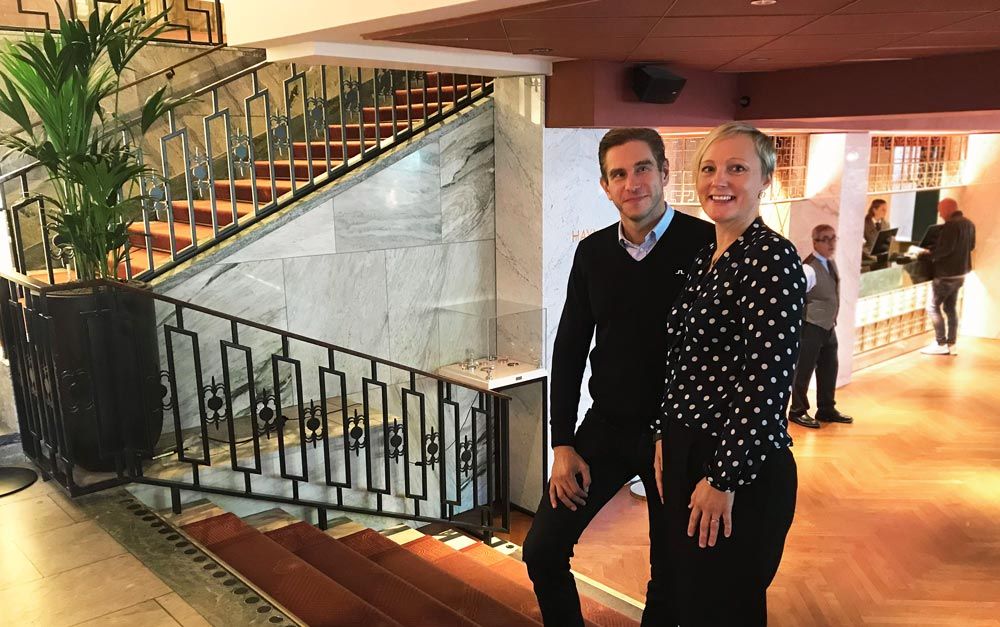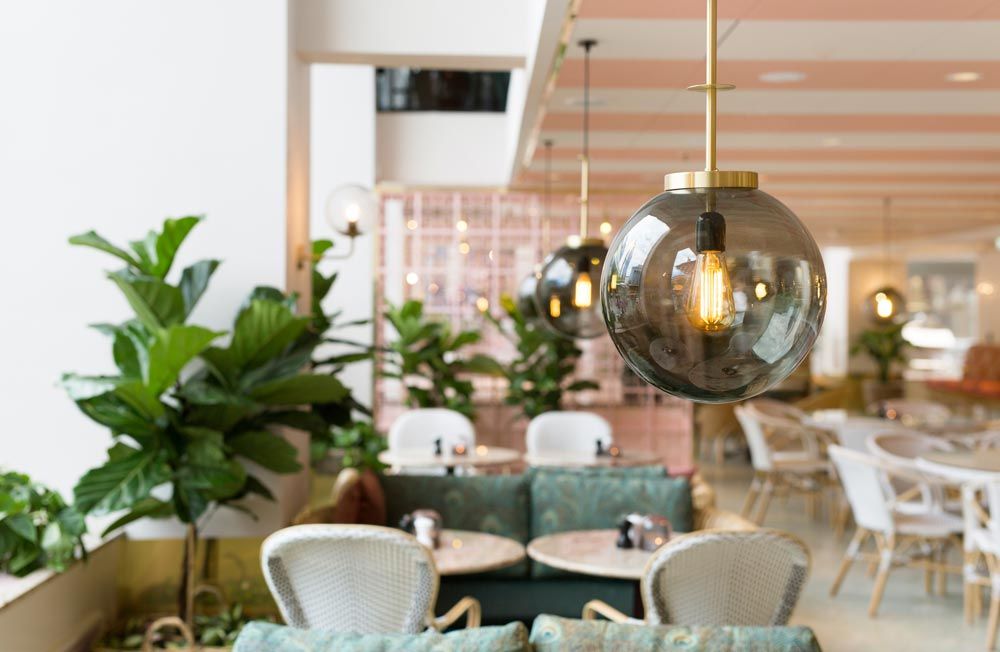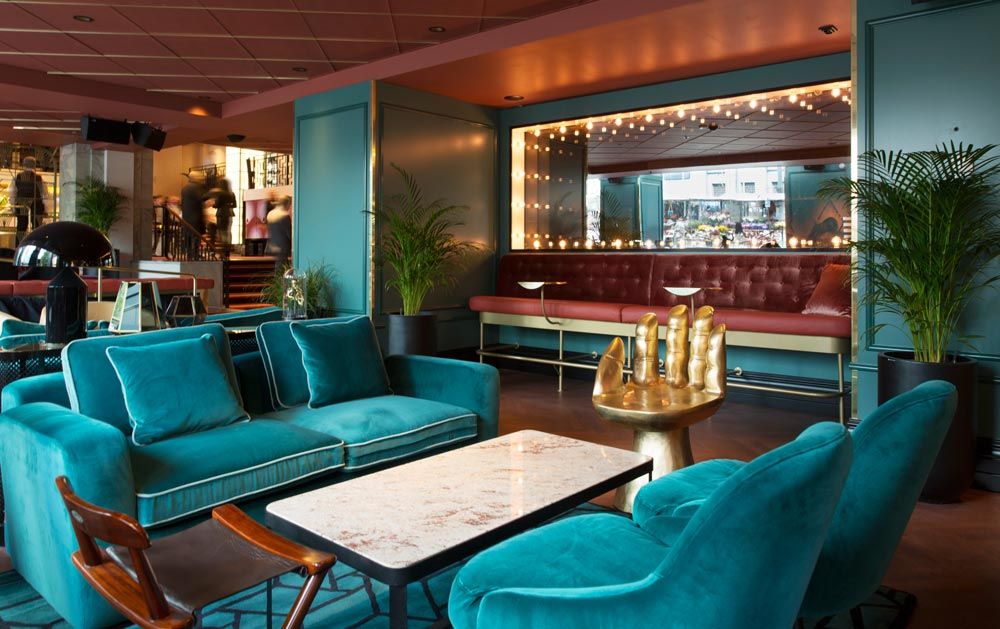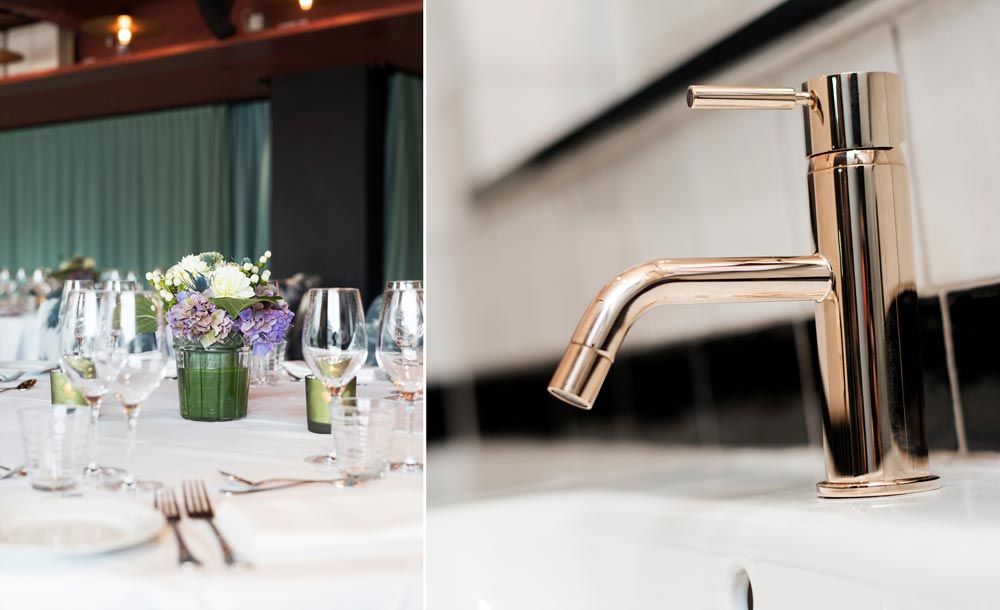Scandic praised for its environmental work: Siemens’ digital solutions behind the success
The hotel operator Scandic has made a mark for its work on environmental and sustainability issues from early on. Its persistent work has not only resulted in financial savings but also a change in the behaviour of its employees.
When Paul U. Bergström opened his PUB department store on Hötorget in Stockholm in 1925, the lifts and weak current installations were supplied by Siemens. Almost a century later, the department store has been remodelled into the grand Haymarket by Scandic, a hotel permeated by 1920’s optimism and elegance. And Siemens is still highly involved in the activity.
Several floors below the magnificent foyer and the dining areas meander long, narrow corridors in grey concrete. Behind one of the closed metal doors is the recycling room, where two cheery chaps from the kitchen are busy disposing of plastic packaging. The numerous receptacles in the room are neatly lined up along the walls. Here, the most sortable items can be sorted at source – everything from glass and metal to food leftovers, which are stored in refrigerated containers while awaiting collection.
AnnSofie Lanner, Acting Director of Sustainable Business at Scandic, sticks her head into the room next to the recycling room where the fat separator is located.
“Isn’t the fat used to make make-up, Tommy?
“Well, nowadays it will be rotted. In the past, the fat was refined, and things were made from it, but now it is converted into biogas. They’ve realised that it is a better idea to rot it instead,” replies Tommy Andersson, Technical Operations Manager at Scandic Sweden.

Tommy Andersson, Technical Operations Manager at Scandic and AnnSofie Lanner, Acting Director of Sustainable Business at Scandic.
New technology measures consumption
Environmental and sustainability work is part of Scandic’s DNA, and the hotel chain has been a pioneer in integrating sustainability work in its operations. Earlier this year, Scandic Sverige was voted the best in the industry for sustainability in the Sustainable Brand Index brand study – for the eighth consecutive year.
But Scandic’s environmental work has been going on for longer than that. As early as 1993, a policy for saving energy and water was implemented and the company began to keep statistics on energy consumption. Water and energy cost the company large sums, and the effect of the investment was not only to save money, but to ease the strain on the environment, too.
Watch the film about the digital services supported by Navigator
It was like ripples on the water. The results increased the appetite for improvement, and Scandic decided to become a leader in environmental work and sustainability. New technical solutions that facilitated the work were introduced, and today much of it is done digitally. Statistics on energy, heat and water consumption and waste are analysed and monitored by the Siemens Navigator digital tool.
“We have known about Scandic’s major environmental focus for some time. And the details regarding what they wanted to measure and monitor were very interesting to us. Their focus is obviously on reducing energy consumption, as well as measuring the consumption of everything from chemicals, waste in different departments to laundry relating to each hotel,” says Janne Ahlman, energy engineer and project manager at Siemens.

Digital monitoring is a prerequisite
The cooperation on Navigator actually began during a regular follow-up meeting regarding Siemens fire alarm installations at the hotels. Scandic mentioned at that time that they were looking for a system that could optimise their environmental work, and it turned out that Siemens had a suitable solution for the purpose.
“Discussions with other suppliers were already under way, but when we started talking about Navigator, Scandic became very interested,” says Janne Ahlman. It is a highly flexible system that can be adapted to users’ needs.
Tommy Andersson had realised the need for a new tool to monitor environmental work when he first started at Scandic five years ago. The system used back then provided them with a good overview of the actual consumption but lacked the accuracy and analytical capabilities to be able to perform proper monitoring. There was a need for a more digital tool to better manage the work.

It took five months to implement Navigator at all 250 Scandic hotels in the Nordic region, Germany and Poland. Today, it is a major element of their environmental and sustainability efforts.
By connecting Navigator to Scandic’s invoicing routines, the system collects information such as kilowatt hours consumed and how much waste has been collected for the different departments. Water consumption is read manually once a month and reported to Navigator. The reports are fully visible to employees, and there are plans to publish them in 2019 for guests to read as well.
“When everyone is aware that their consumption is public knowledge, it will also be possible to show positive figures and to explain what has been done to make the change. If water consumption at a hotel is high one month, we always receive quick reports about the reason for this,” says AnnSofie Lanner.
Changes in behaviour
In 2003, it was decided that all Scandic hotels in Sweden should be Nordic Swan Ecolabelled, a mark that is reviewed every year according to new criteria. In other words, it requires continuous, diligent work to maintain environmentally-friendly activity, which has produced results and yielded a great deal of commitment. Not least among Scandic employees.
“Everybody is involved and comes up with new suggestions on how we can further improve our sustainability and environmental work,” explains AnnSofie Lanner and continuing:
“Many of the best ideas come from the employees, not from head office. For example, a cleaner realised that she was often throwing away packs of soap remains when she cleaned the rooms. She suggested that we should save the leftover soap and recycle it to replenish the soap pumps. Large amounts of soap were saved.

What was ground-breaking when Scandic began its sustainability work 25 years ago has become more or less the norm today. Scandic was, among other things, the first hotel group to ask its guests to hang up their towel in the bathroom if they wanted to use it again – something that is now standard in many hotels around the world.
Tommy Andersson notes that the sustainability efforts are not at all counterproductive from a business point of view, but that many ideas get through as they ultimately save money.
“This proves that environmental work goes hand in hand with business. It needn’t be limiting in any way but can be a success factor of the highest order.”